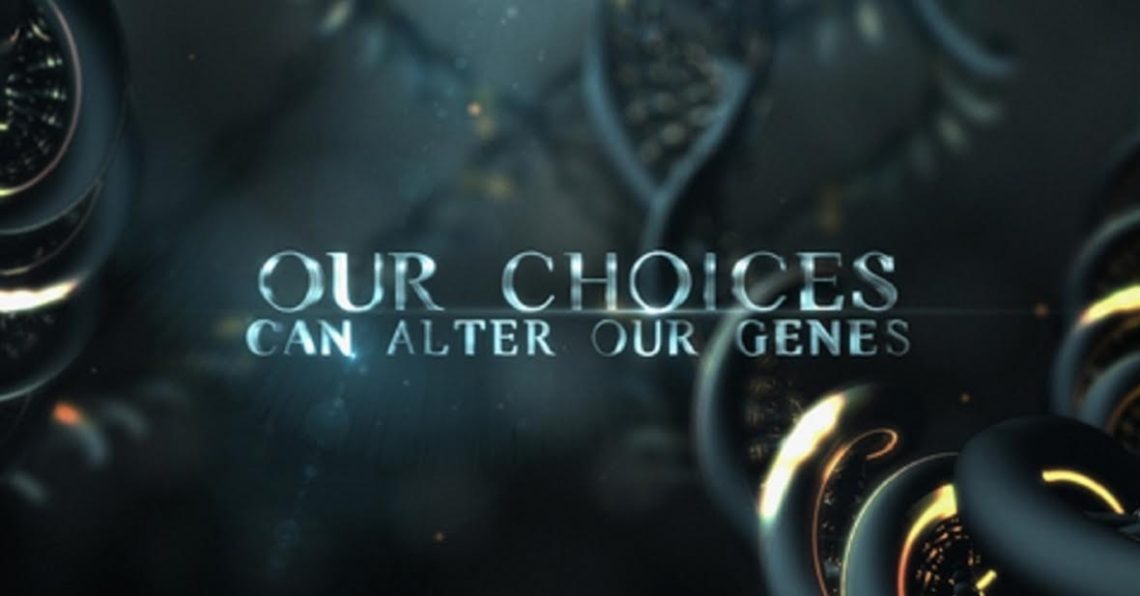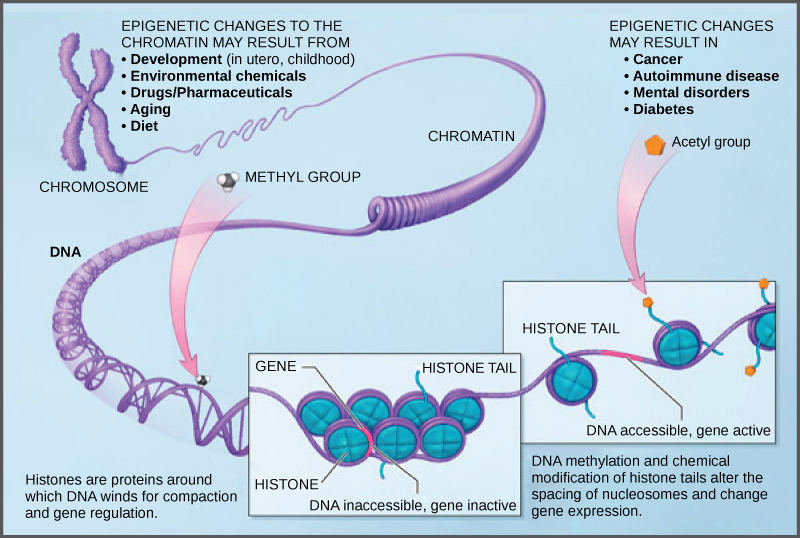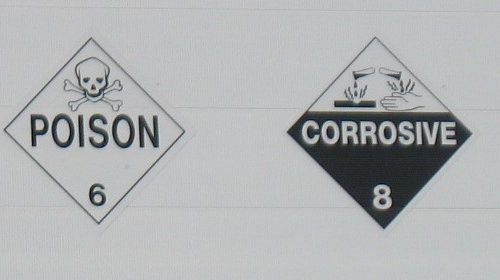
Enter Epigenetics, Exit Evolution
Genetic Mutations
At the simplest level, a mutation is a change or transformation. In biology, mutations refer to changes in chromosomes and genes, which typically manifest physically. Also, mutations can be classified in various ways depending on the cause of the mutation, its effect on the function of the gene product, or the kind of changes to the structure of the gene itself. Mutagenic agents such as carcinogens or high-energy radiation lead to changes to the genomic material. Some mutations occur as a natural byproduct of the error rate in DNA or RNA replication mechanisms. A mutation could result in a loss-of-function or gain-of-function mutation, depending on whether the gene product is inactivated or has enhanced activity. All these effects arise from a change in the structure of a gene or allied chromosomal material.” (8) Furthermore, these genetic mutations can be helpful or harmful. For example, Sickle Cell Disease (harmful) and Lactose Tolerance (beneficial) (8)
Evolution
According to Darwin’s Theory, as random genetic mutations occur within an organism’s genetic code (i.e., the genes that form the DNA), the beneficial mutations are preserved because they aid survival by a process he called “natural selection.” These beneficial mutations are passed on to the next generation via the changed genes. Also, these beneficial mutations accumulate, and the result is an entirely different organism (i.e., not just a loss-of-function or gain-of-function as previously described, but an entirely different creature). (5)
Furthermore, Darwin’s Theory of Evolution describes a slow, gradual process. Darwin wrote, “…Natural selection acts only by taking advantage of slight successive variations; she can never take a great and sudden leap but must advance by short and sure, though slow steps.” (2) Thus, Darwin conceded that “If it could be demonstrated that any complex organ existed, which could not possibly have been formed by numerous, successive, slight modifications, my theory would absolutely break down.” (3) Such a complex organ would be known as an “irreducibly complex system.” An irreducibly complex system is one composed of multiple parts, all of which are necessary for the system to function. If even one part is missing, the entire system will fail to function. Every individual part is integral. (4) Thus, such a system could not have evolved slowly, piece by piece.
Darwin’s Theory of Evolution is in crisis (9) due to the incredible advances made in molecular biology, biochemistry, and genetics over the past decades. We now know that there are in fact tens of thousands of irreducibly complex systems on the cellular level. Specified complexity pervades the microscopic biological world. (5)
“Although the tiniest bacterial cells are incredibly small, weighing less than 10-12 grams, each is in effect a veritable micro-miniaturized factory containing thousands of exquisitely designed pieces of intricate molecular machinery, made up altogether of one hundred thousand million atoms, far more complicated than any machinery built by man and absolutely without parallel in the non-living world.” (4)
Finally, evolution cannot be true in this Adamic age (1) as it contradicts what we understand the Bible says during the fifth and sixth days of creation:
God said, "Let the water swarm with swarms of living creatures and let birds fly above the earth across the expanse of the sky." God created the great sea creatures and every living and moving thing with which the water swarmed, according to their kinds, and every winged bird according to its kind. God saw that it was good. God blessed them and said, "Be fruitful and multiply and fill the water in the seas, and let the birds multiply on the earth." There was evening, and there was morning, a fifth day. God said, "Let the land produce living creatures according to their kinds: cattle, creeping things, and wild animals, each according to its kind." It was so. God made the wild animals according to their kinds, the cattle according to their kinds, and all the creatures that creep along the ground according to their kinds. God saw that it was good. Then God said, "Let us make humankind in our image, after our likeness, so they may rule over the fish of the sea and the birds of the air, over the cattle, and over all the earth, and over all the creatures that move on the earth." God created humankind in his own image, in the image of God he created them, male and female he created them. (Genesis 1:20-27 NET)

Epigenetics
Epigenetics means “above” or “on top of” genetics. It refers to external modifications to DNA that turn genes “on” or “off.” These modifications do not change the DNA sequence, but instead, they affect how cells “read” genes. Every living organism on earth has its own specific genome. This is an organism’s complete set of DNA, including genes, found in every single cell of that organism. Each individual DNA sequence is a conglomeration of their parents, yet unique to that individual.
Science used to think that a new embryo’s epigenome was completely erased and rebuilt from scratch. But this is not entirely true. Some epigenetic tags remain in place as genetic information passes from generation to generation, a process called epigenetic inheritance. Epigenetic inheritance is an unconventional finding. It goes against the idea that inheritance happens only through the DNA code that passes from parent to offspring. It means that a parent’s experiences, in the form of epigenetic tags in the parent’s genes, can be passed down to future generations during the reproductive process. (6)
Again, most epigenetic modification, by whatever mechanism, was believed to be erased with each new generation, during gametogenesis, and after fertilization. However, one of the more startling reports published in 2005 challenges this belief and suggests that epigenetic changes may endure in at least four subsequent generations of organisms. Michael Skinner, a professor of molecular biosciences and director of the Center for Reproductive Biology at Washington State University, and his team described in the 3 June 2005 issue of Science how they briefly exposed pregnant rats to individual relatively high levels of the insecticide methoxychlor and the fungicide vinclozolin, and documented effects such as decreased sperm production and increased male infertility in the male pups. Digging for more information, they found altered DNA methylation of two genes. As they continued the experiment, they discovered the adverse effects that lasted in about 90% of the males in all four subsequent generations they followed, with no additional pesticide exposures. (7)
Epigenetics could be true as it is in alignment with the Bible:
You shall not bow down to them or serve them, for I, the LORD, your God, am a jealous God, responding to the transgression of fathers by dealing with children to the third and fourth generations of those who reject me, (Exodus 20:5 NET)
That is, God has so designed mankind’s bodies that the effects of our sin are transferred to the third and fourth generation, not by changes in the genes of our DNA as evolution states, but rather by changes in our epigenetics. This does not result in a completely different being as the theory of evolution describes (e.g., monkey to man) but rather a parent that has an addictive sin (e.g., alcoholism, drug addiction, sexual addiction, etc.) will pass this tendency or vulnerability on to their offspring.
You shall not bow down to them or serve them, for I, the LORD, your God, am a jealous God, responding to the transgression of fathers by dealing with children to the third and fourth generations of those who reject me,and showing covenant faithfulness to a thousand generations of those who love me and keep my commandments. (Exodus 20:5–6 NET)
Consequently, what we do for good or for bad up until producing children affects our epigenetic system, and we transfer these changes to our offspring (1), our legacy, for good (1000 generations) or bad (3 or 4 generations) during the reproductive process.
“Look, I was guilty of sin from birth, a sinner the moment my mother conceived me.” (Psalms 51:5 NET)
The wicked turn aside from birth; liars go astray as soon as they are born. (Psalms 58:3 NET)
It is the changes to our epigenetics, and the neural pathways of our brain, that are responsible for much of the difficulty in overcoming addictions. In addition, there is a spiritual warfare (1) component to overcoming addictions that must be dealt with as well.
Selah (Pause and think about that)
Discipleship for Maturing Christians
- Spiritual Transformation Demystified
- Religious Nut or Passion Fruit?
- Nomen Est Omen
- What is the Name of the Father, and the Son, and the Holy Spirit?
- Why was God’s Unique Son Given the Name Above All Names?
- Enter Epigenetics, Exit Evolution
- Healing by Medicine or Miracle?
- God’s CIA
Shalom
(Security, Wholeness, Success)
Peace
Then he said to them, “Therefore every expert in the law who has been trained for the kingdom of heaven is like the owner of a house who brings out of his treasure what is new and old.” (Matthew 13:52 NET)
(1) Select the link to open another article with additional information in a new tab.
(2) Michael Behe, “Darwin’s Black Box,” 1996.
(3) “Unlocking the Mystery of Life,” a documentary by Illustra Media, 2002.
(4) Michael Denton, “Evolution: A Theory in Crisis,” 1986, p. 250.
(5) https://www.darwins-theory-of-evolution.com
(6) http://learn.genetics.utah.edu/content/epigenetics/imprinting/
(7) https://www.ncbi.nlm.nih.gov/pmc/articles/PMC1392256/
(8) https://biologydictionary.net/mutation/
(9) https://dissentfromdarwin.org/



